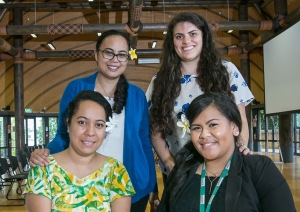LENScience and LifeLab Southampton are seeking two undergraduate students for projects available within this scheme.
If you are a Health Sciences, Science Education or Social Sciences undergradaute from the University of Southampton this could be your chance to participate in some exciting and important research - and spend summer 2019 in New Zealand!
The successful students will join the LENScience Knowledge Translation research group at the Liggins Institute. You will contribute to research investigating responses to programmes for teenagers underway in Southampton, New Zealand, Tonga and the Cook Islands.
Details for the two projects are provided below.
For information about the projects contact Dr Jacquie Bay j.bay@auckland.ac.nz
Applications close 04-Febraury 2019.





